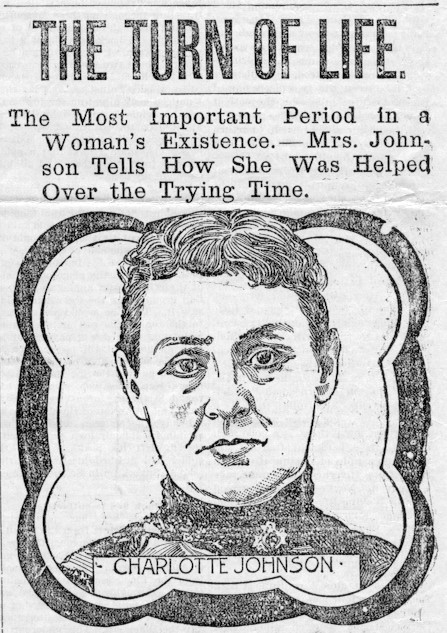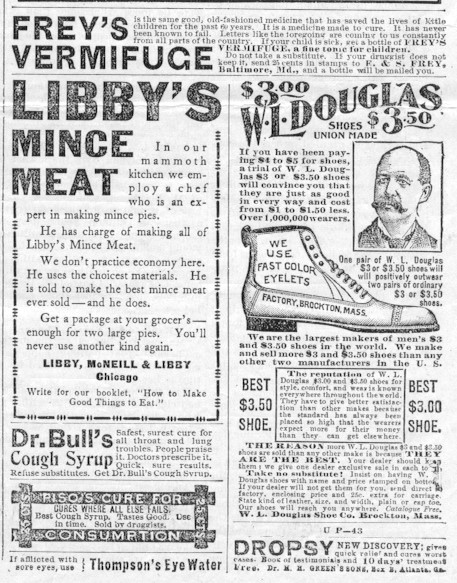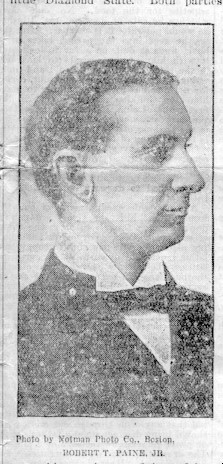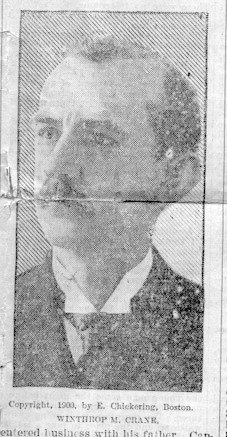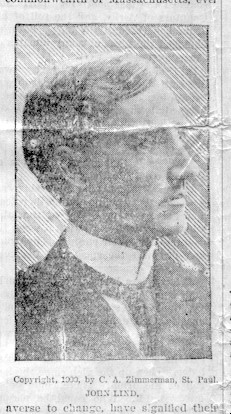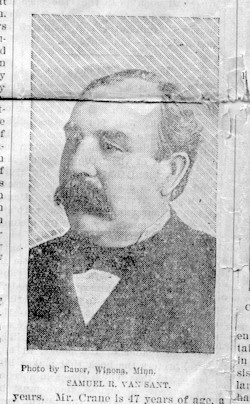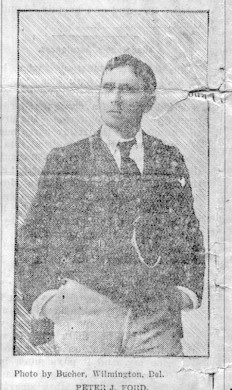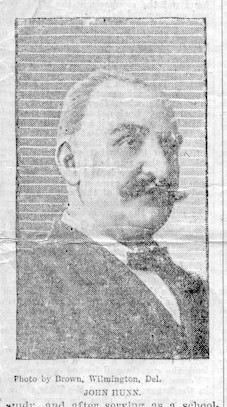PAGE 7 Previous
Every year over 100,000 persons die of consumption in this country alone. Cherry Pectoral would not have cured all these. Taken in time, it would have cured many.
A Mr. D. P. Jolly, of Atoca, N.Y., wrote us a few weeks ago, that his mother had old fashioned consumption for years, and was given up to die. She tried Ayer’s Cherry Pectoral. It helped her at once, and she is now completely restored to health.
We believe Mr. Jolly’s story, because it is one of thousands.
Three sizes of Ayer’s Cherry Pectoral: 25 cents, 50 cents and $1.00. Buy the most economical size for your case.
J. C. Ayer’s Company Practical Chemists Lowell, Mass.
If for any reason, your druggist cannot or does not give you Ayer’s Cherry Pectoral when you call for it, send us one dollar for the large size, and we will deliver it to you, all charges paid.
A Conversation Barred Out
At a term of the Circuit Court in one of the upriver counties not long ago a horse case was on trial and a well known horseman was called as a witness. “Well, sir, you saw this horse?” said the defendant’s counsel. ‘Yes sir, I– “What did you do?” “I jest opened his mouth to find out how old he was an’ I says to him, says I, ‘Old feller, I guess you’re pretty good yet.'” “Stop!” cried the opposing counsel. “Your Honor, I object to any conversation carried on between the witness and the horse when the plaintiff was not present.” The objection was sustained. Rochester Post Express.
PUTNAM FADELESS DYES do not stain the hands or spot the kettle. Sold by all druggists.
Queer Insect – A curious butterfly exists in India. The male has the left wing yellow and the right one red; the female has these colors reversed.
The Best Prescription for Chills and fever is a bottle of GROVE’S TASTELESS CHILL TONIC. It is simply iron and quinine in a tasteless form. No cure – no pay. Price 50 cents.
When it comes to paying bills, a great many people dwell in the land of promise.
Best for the Bowels – No matter what ails you, headache to a cancer, you will never get well until your bowels are put right. CASCARETS help nature cure you without a gripe or pain, produce easy, natural movements, cost you just 10 cents to start getting your health back. CASCARETS Candy Cathartic, the genuine, put up in metal boxes, every tablet has C.C.C. stamped on it. Beware of imitations.
Infectious diseases are unknown in Greenland on account of the dry, cold atmosphere.
Catarrh Cannot Be Cured with local applications, as they cannot reach the seat of the disease. Catarrh is a blood or constitutional disease, and in order to cure it you must take internal remedies. Hall’s Catarrh Cure is taken internally, and acts directly on the blood and mucous surface. Hall’s Catarrh Cure is not a quack medicine. It was prescribed by one of the best physicians in this country for years, and is a regular prescription. It is composed of the best tonics known, combined with the best blood purifiers, acting directly on the mucous surfaces. The perfect combination of the two ingredients is what produces such wonderful results in curing catarrh. Send for testimonials, free. F. J. Cheney & Co. Props., Toledo, O. Sold by druggists, price, 75 cents.
Hall’s Family Pills are the best.
Texas has 30,660,772 acres of unimproved land.
Libby’s Food Products at the Paris Exposition
The Grand Prix d’Honneur and two gold medals have been awarded by the International Jury of Awards at the Paris Exposition, to Libby, McNeil & Libby, of Chicago, for their purity, excellence and superiority of their Canned Foods. Here in America, the “Libby” Brand has always been recognized as typical of the highest standard of excellence attained in the preservation of Meats, and it is a noticeable fact that the products of Libby, McNeil & Libby have received the highest awards at every Exposition held in the United States during the past two decades.
New Hampshire’s annual shoe output is $23,000,000.
Winter Tourist Rates South
Winter tourist rates for season 1900-1901, to all tourist points in South and Southwest via Southern Railway, go into effect October 15th, 1900. Full particulars of any agent of that company. This is the route of the New York and Florida Limited and offers on all through trains dining-car service the year round. Address Alex. S. Thweatt, Eastern Pass. Agent, 1185 Broadway, New York.
A British-American union has been organized in San Francisco.
Piso’s Cure is the best medicine we ever used for all affections of throat and lungs -Wm. O. Endsley, Vanburen, Ind., Feb. 10, 1900
In China trades and professions are hereditary in families.
Dyspepsia is the bane of the human system. Protect yourself against its ravages by the use of Beeman’s Pepsin Gum.
Printing is said to have been known in China as early as 202 B. C.
Mrs. Winslow’s Soothing Syrup for children teething, softens the gums, reduces inflammation, allays pain, cures wind colic. 25 cents a bottle.
Few people acquire polish on the grindstone of adversity.
DISCOURSES OF THE DAY
A TIMELY SERMON BY THE REV. T. DE WITT TALMAGE
Subject: An Exile from Howe – Perils That Beset the Young Man Seeking Fortune – Dangers and Temptations That Surround Him [Copyright 1900]
Washington, D.C. Dr Talmage staid in London to occupy the famous Wesley pulpit in the City Road chapel, where he preached several times before, always receiving hearty welcome. Thence he went to Ireland, preaching in Belfast and Dublin. The discourse he has sent this week describes the behavior of a young man away from home and suggests practical lessons for people of every age and class. The text is Daniel i, 5, “And the King appointed them a daily provision of the kind’s meat and of the wine, which he drank, so nourishing them three years, that at the end thereof they might stand before the king.”
My text opens the door of a college in Babylon and introduces you to a young student seventeen years of age, Daniel by name. Be not surprised if in the college you find many hilarities. Put a hundred young men together and they are sure to have a good time. There is no harm in that. God does not write out the trees, and the grass, and the blossoms, in dull prose. The old robin does not sit moping in the nest because of the chirpings and the lively adventures of the fledglings that have just begun to fly. Do not come into an orchard looking for winter apples on a May morning.
But Daniel of our text is far from being gay. What oppressive thoughts must have come over him as he remembered that he was a captive in a strange land! The music that came into his study window was not the song of Zion, but the sound of flute, sackbut and dulcimer in the worship of the heathen god. Moreover, he had no hope of ever getting back home again and meeting those who had missed him long and missed him bitterly, wondering if he were still alive and finding many a luxury tasteless because they did not know but Daniel might be lacking bread.
When you and I were in school or college and the vacation approached, we were full of bright anticipation, and we could not study the last night. The lexicon and the philosophical apparatus were transparent, so we could see right through them into the meadows and the orchards. Not so with poor Daniel. He did not know that he should ever escape from captivity, or escaping, he did not know but when he got home the loved ones would be dead and he would go, wandering and weeping, among the sepulchers of his fathers. Besides that, the king tried to make him forget his home and forget his country and for that purpose actually changed his name. the king wanted him to be a prodigy in personal appearance, and so he ordered meat and wine sent from his own table to Daniel, but Daniel refuses all this and puts himself upon the humblest diet, and poorest of all herbs, called pulse, and plain water. His attendants cry out against this and tell him he will perish under such a diet. “No,” he says; “you try us for ten days, and if at the end of that time we are not full cheeked and robust as any it will be surprising.” Ten days pass along, and the students come up for examination, and all declare that none are so ruddy and robust as Daniel and his fellow captives. The days of industrious pupilage and the years pass by, and the day of graduation has come and Daniel gets his diploma, signed by the king, and reading as follows: “In all matters of wisdom and understanding that the king inquired of them he found them ten times better than all the magicians and astrologers that were in all his realm.” And so Daniel took the first honor, and here the story ends, for Daniel the student, hereafter will be Daniel, the prime minister.
The next thought suggested to me by this subject is that young men may be carried into captivity by their enemies. There is a captivity more galling than the one in which Daniel was transported. It is the captivity of evil habit. Men do not go into that wittingly. Slyly and imperceptibly are the chains forged upon them, and one day they wake up to find themselves away down in Babylon. Cyrus afterward consented that some of his captives should return, and 50,000 of them accepted the opportunity. But tell me what evil habit ever consented to let a man go. Ten plagues made Pharaoh consent to the departure of God’s people, but tell me what Pharaoh of evil habit ever cheerfully consented to let any of its victims go. Men talk of evil habits as if they were light and trivial, but they are scorpion whips that tear the flesh; they are spikes more bloody than the path of a Brahman; they are the sepulchers in which millions are burned alive. The young are in more peril because they are unsuspecting. The lions are asleep in their soul, and their power is not suspected. The time when a ship’s company makes mutiny is when the watchman is off his guard. When a spider meets a fly, it does not say, “Go down with me to the place where I murder insects” No; it says, “Come and take a walk with me on this suspension bridge of glittering gossamer.” Oh, there is a difference between the sparkle of a serpent’s eye and the crush of its slimy folds! There is a difference between the bear’s paw toying with a kid and the crackling of the bones in the terrible hug. Pike’s peak looks beautiful in the distance, but ask the starved travelers by the roadside what they think of Pike’s peak. Are there those around whom suspicious companions are gathering? Do their jests and their entertainments make the hours go blithely by when you are with them? Have you taken a sip from their cup of sin or gone with them in one path of unrighteousness? Turn back.
From Babylon they came, and to Babylon they would carry you. If so many plague stricken men would like to enter your companionship before any one is allowed to pass into the intimacy of your heart put them on the severest quarantine.
My subject also impresses me with the fact that early impressions are almost ineffaceable. Daniel had a religious bringing up. From the good meaning of his name I know he had pious parentage. But as soon as he comes into the possession the king, his name is changed, all his surroundings are changed, and now, you say, will begin the demoralization of his character. Before his name was Daniel, which means, “God, my judge;” now his name is to be Belteshazzar, which means, “the treasurer of the god Bel.”
Now you expect to see him overthrown amid all these changed circumstances. Oh, no! Daniel started right and he keeps on right. When I find what Daniel is in Jerusalem I am not surprised to find what he is in Babylon.
I wish that I could write upon all parents’ hearts the fact that early impressions are well nigh ineffaceable. When I see Joseph, a pious lad, in the house of his father, Jacob, I am not surprised to see him acting so nobly down in Egypt.
When I find Samuel, a pious lad, in the house of his mother, Hannah, I am not surprised that he gives a terrible smiting to idolatry as soon as he comes to manhood. David planned the temple at Jerusalem and gathered the materials for its building, but Solomon, the son, came and put up the structure, and that goes on in all ages. The father plans the character of the child and its destiny for time and eternity, then the son completes the structure.
You might as well put down a foundation ten feet by five and expect to rear on it a great cathedral as to put down a contracted character in a child’s soul yet rear upon it something extensively grand and extensively useful!
Let me say to those Christian parents who are doing their best in the education of their children: Take good heart. Your sons this morning may be far away from you and in a distant city, but God, to whom you dedicated them, will look after them. The God of Daniel will take care of them far away in Babylon. “Train up a child in the way he should go, and when he is old he will not depart from it.” He may wander away for awhile and fall into sin and break your heart, but before he is done with his life, you, having committed him to God, he will come back again, for I put the emphasis in the right place and on the word “old” when I repeat that passage and say, “Train up a child in the way he should go and when he is old he will not depart from it.”
Are you fond of pictures? Here is one drawn by Solomon: “Who hath woe? Who hath sorrow? Who hath contentions? Who hath babbling? Who hath wounds without cause? They that tarry long at the wine, they that go to seek mixed wine. Look not thou upon the wine when it is red, when it moveth itself aright in the cup. At the last it biteth like a serpent and stingeth like an adder.”
“Do you know what you are doing?” said a mother who had broken into a restaurant, the door locked against her, her son inside. She came up to the counter and saw the man of the restaurant mingling the intoxicating cup for her own son. She said to the man behind the counter, “Do you know what you are doing?” “No,” said he, “I don’t.” Says she, “You are fattening graveyards.”
I was told at Des Moines of a train of cars going through a very stormy night over one of the western prairies. The young man who was present told us the story. In the night there was a little child in the sleeping car fretful and worrying and crying hour after hour. A man on the opposite side of the car lost his patience and said, “Either make that child shut up or take it to its mother!” Then another man on the opposite side of the sleeping car, a man with a broken heart, pushed back the curtain and looked out and said, “Young man, that child’s mother is dead in the baggage car and the little thing is wailing for her.” Then the man who had committed the affront rose and offered his services for the night and took care of the child until the morning, and all the passengers in the car were broken down with emotion.
Oh, if the cry of a child could arouse so many sympathies, what ought to be the effect of the ten thousand voiced shriek of orphanage and widowhood from the inebriate’s grave! God save this country from the perils of strong drink.
My subject also impresses me with the beauty of youthful character remaining incorrupt away from home. If Daniel had plunged into every wickedness of the city of Babylon the old folks at home would never had heard of it. If he had gone through all the rounds of iniquity, it would have cast no shadow on his early home. There were no telegraphs, there were no railroads. But Daniel knew that God’s eye was on him.
That was enough. There are young men not so good away from home as at home. Frederick tending his father’s sheep among the hills or thrashing rye is different perhaps from Frederick on the Stock Exchange. Instead of the retiring disposition there is a bold effrontery. Instead of an obliging spirit there is perhaps oppressive selfishness.
Instead of the open handed charity there is tight fisted stinginess. Instead of reasonable hours there is midnight revel. I speak to many young men on this matter–you who may have left your father’s house and others who, though still under the parental roof, are looking forward to the time when you will go forth to conflict, alone in this world, with its temptations and its sorrows, and when you will build up your own character. Oh, that the God of Daniel might be with you in Babylon!
I think the most thrilling passage of a young man’s life is when he leaves home to make his fortune. The novelty and the romance of the thing may keep him from any keen sorrow, but the old people who have seen the destruction of so many who have started with high hope cannot help but be anxious. As long as he was in his father’s house his waywardness was kindly chided, and although he sometimes thought the restraint rather bitter and rather severe, in his calmer moments he acknowledged it was salutary and righteous. Through the influence of metropolitan friends, the father has obtained a situation for his son in the city. The comrades of the young man come the night before his departure to bid farewell to the adventurer. The morning of his going away he walks around the place to take a last look at things, perhaps comes upon some object that starts a tear, some old familiar place, but no one sees the tear. The trunk is put upon the wagon, the young man is off for the city. He is set down among excitements and amid associates who are not overcareful about their words and thoughts and actions. Morning comes. No family altar. Sabbath comes. No rural quiet. The sanctuary comes, but all the faces are strange, and no one cares whether he comes to church or does not come. On his way from the store he sees a placard announcing a rare and a vicious amusement. He has no greeting at the door of the boarding house. He has no appetite for the food. No one cares whether he eats or does not eat. Rather he would not eat. It is cheaper. After the tea, he goes into the parlor, takes up a book, finds it dull, no sister to look over it with him. Goes upstairs to his room in the third story, finds it cold and uninviting and in despair he rushes out, caring for nothing but to get something to make him stop thinking. He is caught in the first whirl of sin. He has started out on the dark sea where the gleam of the joy is the flashing of the pit and the laughter is the creaking of the gate of the lost.
Oh, how many graves there are in the country churchyard which, if they could speak, would tell of young men who went off with high hopes and came back blasted and crushed to disgrace the sepulcher of their fathers.
And yet this exodus must go on. As from distant hills the rivers are poured down from tunnels to slake the thirst of our great cities, so from distant country places the streams of incorrupt populations must pour down to purify our great cities. Tomorrow morning on all the thoroughfares, in every steamboat and in every rail car there will be young men going forth to seek their fortunes in our great towns. O Lord God of Daniel, help them to be as faithful in Babylon as they were at Jerusalem! forget not, O my young friend, in the great seaports, the moral and religious principles inculcated by parental solicitude, and if to-day seated in the house of God you would feel the advantage of early Christian culture forget not those to whom you are most indebted and pray God that as old age comes upon them and the shadow of death the hope of heaven may beam through the darkness. God forbid that any of us through our misconduct should bring disgrace upon a father’s name or prove recreant to the love of a mother. The dramatist made no exaggeration when he exclaimed, “How sharper than a serpent’s tooth it is to have a thankless child!” Oh that God would help you as parents and as young people to take to heart the lessons of this important subject, and if we shall learn that there is danger of being carried into captivity and that early impressions are almost ineffaceable and that there is something beautiful in Christian sobriety and that there is great attractiveness in piety away from home, then it will be to you and to me a matter of everlasting congratulations that we considered how Daniel behaved when he became a college student at Babylon.
Cannibalism is on the decline in the New Hebrides.
THE GHOST OF ARLIE
The Mysterious Drummer; Where, Oh Where, Was He?
Who heard the ghostly drummer of Cortachy Castle beat the death- roll of the late Earl of Arlie?
His spectral tattoo is ever the herald of death to the heads of the Ogilveys. In by- gone times there was a drummer who drummed for “the bonny house of Airlie.” The wretched player offended the earl of those days and was tied up in his own drum and flung from a high tower. After vainly pleading for his life the poor little drummer threatened that his ghost would haunt the family for ever and ever.
Legend has it that generation after generation the dead drummer has sounded the last post for Earl and Countess of Arlie, and the roll of his drums has through the long centuries blanched the faces of many inmates of Cortachy Castle.
In 1845 a visitor at Cortachy was dressing for dinner. A tattoo was beaten beneath her window. The lady listened in surprise, for as far as she knew there was no bandsman at that castle. Going down to dinner she said to her host: “Who is that that plays the drum so skillfully outside the castle?”
The earl turned pale and shivered. The countess could not hide her fear. The face of every Ogilvie at the table was deadly white. Within a week the countess lay in her shroud. The drummer boy was the spectre of Cortachy Castle.
A few years later a young Englishman who was to shoot with Lord Ogilvey, the eldest son at Tulchan, a shooting lodge at the head of Glenshee, missed his way. The night was wild and darkness had long set in before he saw the lights of the shooting lodge. Then up the glen came the long roll of the drum. There could be no mistaking it. Who could be playing out of doors on such a night, he asked Lord Ogilvey. “Silence,” was his only answer. It was the dead drummer of Cortachy Castle. the Earl of Arlie died in London in less than a week.
When the father of the Earl of Airlie who fell in South Africa died, it is said that the drummer did not sound his drum. It may be true. Perhaps he has not beaten it on this occasion. But the countryside will not be denied their ghost, and it may be that we shall soon hear that the spectral drum was heard at Cortachy the day before the gallant cavalryman fell in South Africa. London Mail.
The Happy Side in Fiction
Mr. Marcus Stone has opened up a subject, which, were our silly season not so packed with wars and rumors of wars, might well provide the public with a theme whereon to moralize in print. Talking to an interviewer for the benefit of the “Young Man,”
Mr. Stone declared that both in literature and art it is easier to picture sorrow than joy. According to Mr. Stone, much of our modern realism, with its depressing morbidity and its gloomy philosophy, is due solely to the ease wherewith it can be produced,. “I have only to paint a coffin on a trestle in an empty room,” says the artist, and I cannot help impressing somebody. The read difficulty is to paint the bright and happy side of life, to give the world mirth and refreshment. We are inclined to agree with Mr. Stone. The average reader of books, at any rate, prefers the book that makes him happy to that which closes in sorrow. In tragedy, of course, there must be sorrow, but is not the pitiful, sordid sorrow which modern novelists affect, it is sublime, as in “Lear”. We can enjoy Lamb’s mockery of Tate for putting his hook in the nostrils of this Leviathan; for Garrick to attract playgoers with a happy ending; but we could wish, nevertheless, that modern novelists would realize their own limitations, and give mankind in place of cheap pathos and cynical philosophy, books that breathe the joy of existence, picture the cheerful side of life, and end happily. – London Globe.
Gladstone’s Astuteness One day Mr. Gladstone, who had just then turned twenty, was stopped on a street by a man minus a leg, who solicited alms and averred that he had been wounded at Waterloo.
Inquiring the number of the fellow’s regiment, Mr. Gladstone then submitted him to a smart cross-examination concerning its position in the great battle, and the would-be ex-warrior broke down entirely. He admitted he was a complete fraud, and owned that he had lost a leg by being run over by a wagon. He further volunteered the intelligence that he was intoxicated at the time. But, noticing that Mr. Gladstone seemed more amused than otherwise, the vagrant whined: “Sir, if you had only a lost leg to get a living out of you’d be inclined, I fancy, to make as much out of it as you could. I told the truth till I was starved, then I got onto the battle of Waterloo lay, and it pays much better. Thank heaven, young gentleman, all folks are not so mightily smart as you are, and most of ’em believes me!” The young Oxford undergraduate, as he was then, was so tickled with the candor of the imposter that he gave him a shilling. Household Words.
The Height of Diplomacy If a woman is mad a man will find that a wet cloth on his head and a groan are cheaper than a present to soften her anger. – Atchison Globe
________________________________
A horse will live twenty-five days without solid food, merely drinking water. A bear will go for six months,while a viper can exist for ten months without food. A serpent in confinement has been known to refuse food for twenty-one months.
________________________________
During the French army manoeuvers, motor-cars are to be tried out for the purposes of rapid transport.
________________________________
Berlin last year for the first time registered over 1,000,000 strangers, who had visited the city.
________________________________



